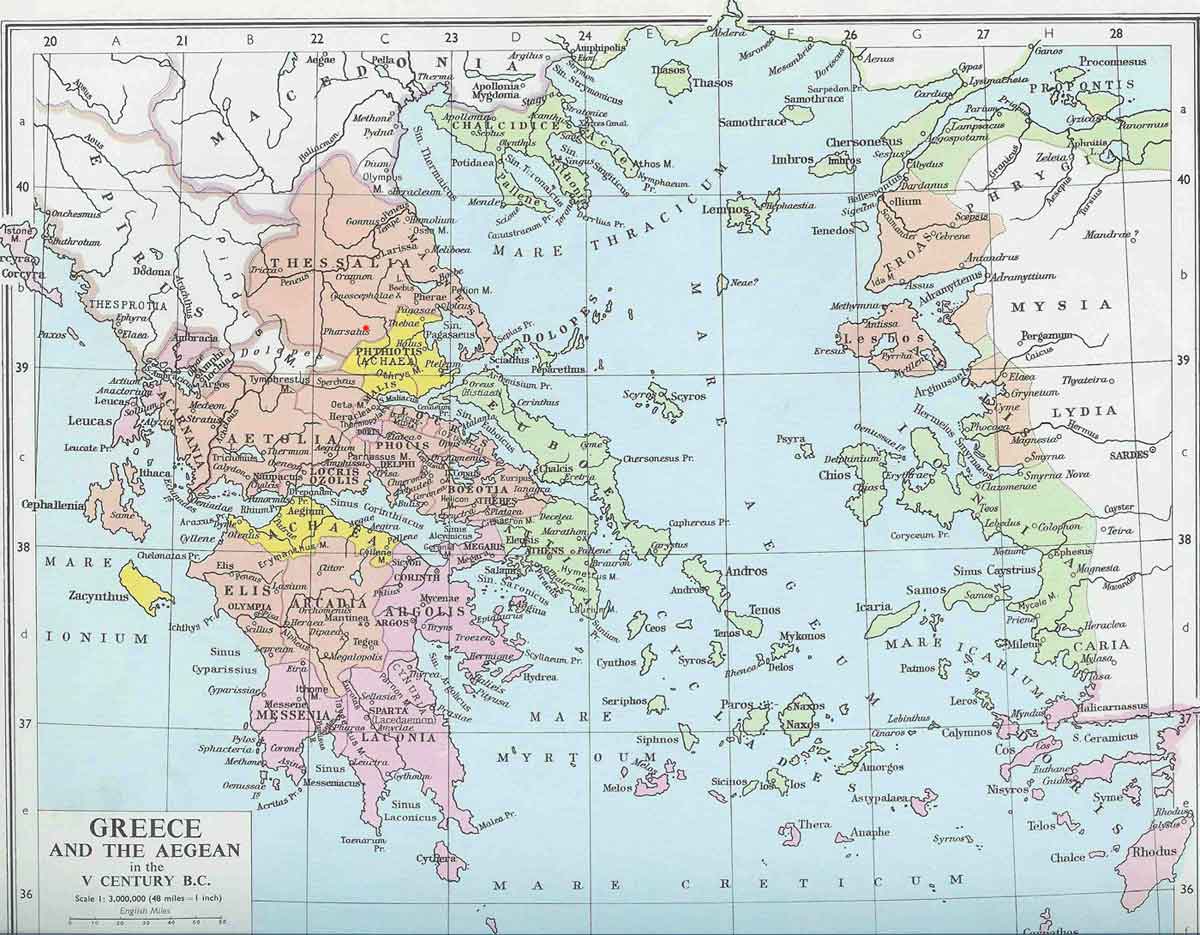The Battle of Pharsalus was the decisive engagement in the ancient Roman civil war between Julius Caesar and Pompey. After Caesar had been defeated by Pompey at Dyrrhachium in 48 BC, both armies departed and again made contact somewhere near what is today Fársala, Greece. After several days of maneuvering, Pompey finally offered Caesar battle (August 9 by the uncorrected Roman calendar; June 6, Julian). Caesar had approximately 22,000 men; Pompey possibly had as many as 45,000.
Pompey massed the main force of his cavalry on his left infantry wing, hoping to outflank and overpower Caesar's right wing, which was made up of a mixed band of cavalry and infantry. Caesar, however, foresaw the defeat of his right wing and had stationed behind it about 2,000 of his best legionnaires. In the ensuing battle, Pompey's cavalry drove back Caesar's cavalry, only to find itself faced by the advancing corps of select men using their pila as stabbing spears rather than as javelins. Confused by the unusual infantry attack, Pompey's cavalry turned and fled. The victorious legionnaires then began to outflank the left wing of Pompey's infantry; at the same time, Caesar's third division, which had been held in reserve, was ordered to attack. Pompey's legions broke, and he himself fled to Larissa. About 24,000 of Pompey's troops surrendered; the rest were dead or in flight. When Caesar, whose casualties were less than 250, surveyed the stricken field and Pompey's dead supporters he exclaimed, "They would have it so" ("Hoc voluerunt"). (Encyclopedia Britannica)
